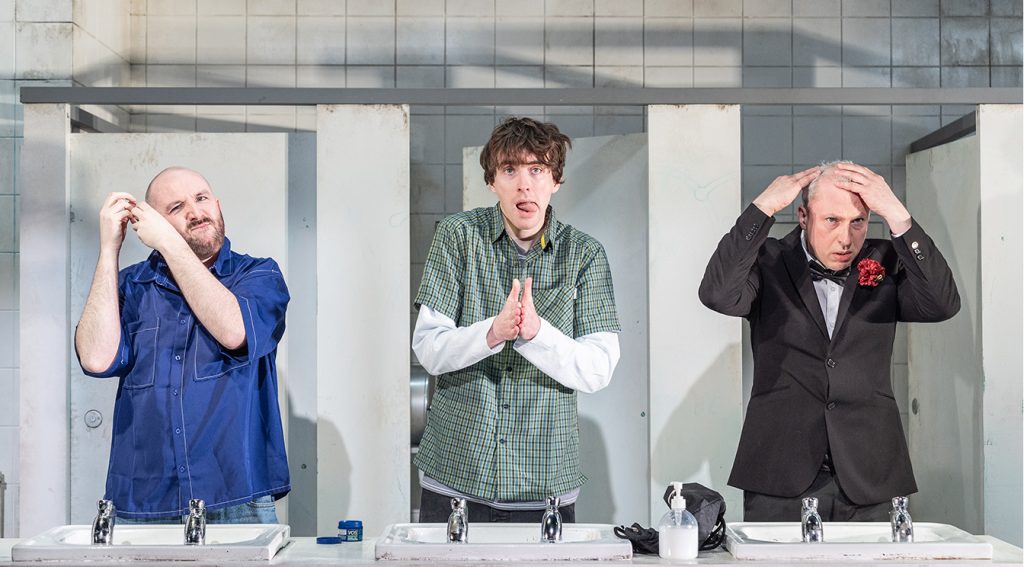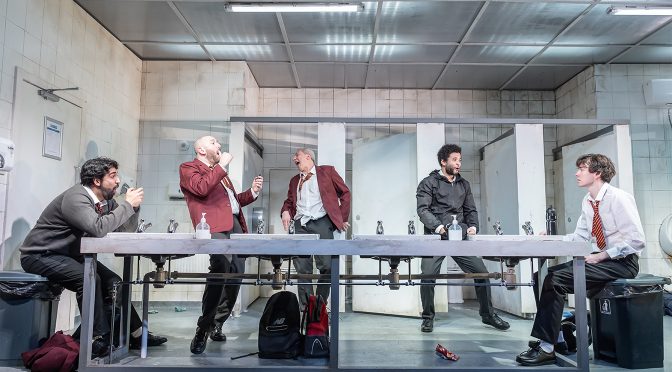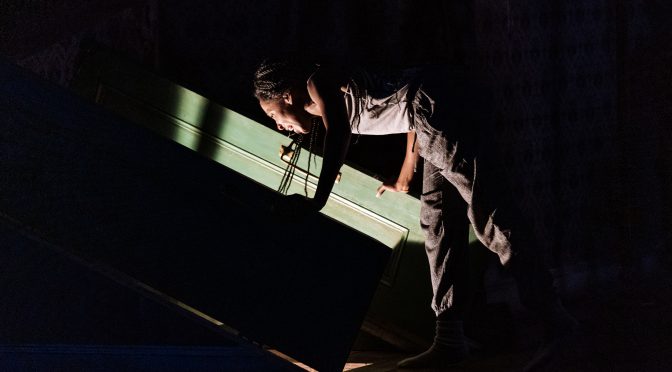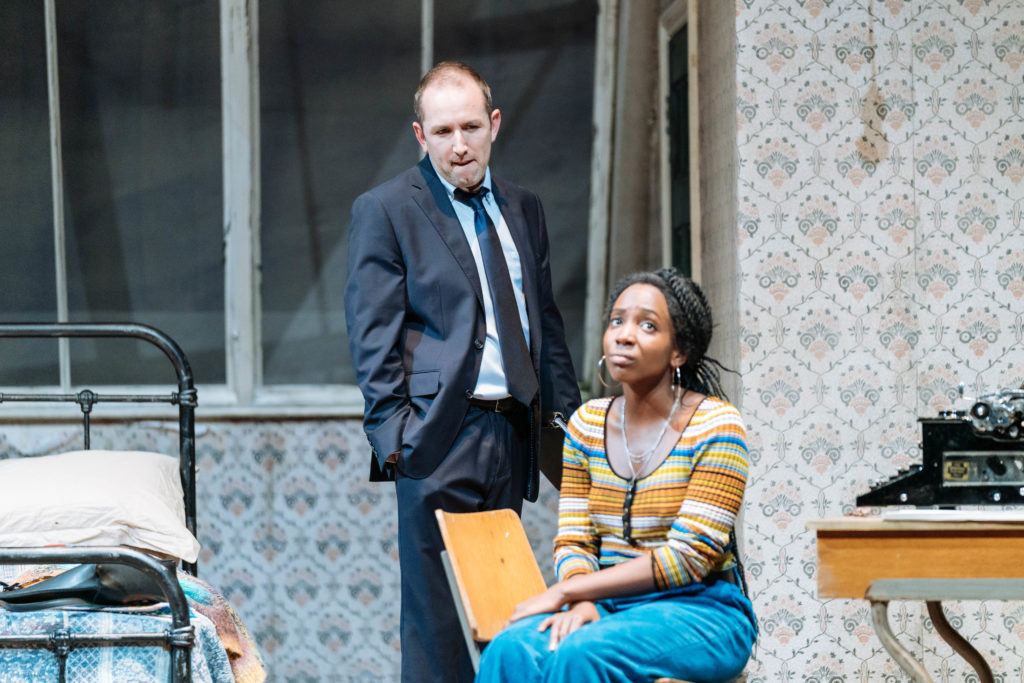For lovers of new writing, the Verity Bargate award is a big deal. Selected from 1500 entries by prestigious judges, this year’s winner from Sam Grabiner is fantastic piece full of ambition and a sense of adventure.
Set entirely in a gents toilet (Ashley Martin-Davis’s set could win another award) the piece is made up of “movements” – pun surely intended – that show the ages of men: from childhood, as teens at school, out on the town, and through to old age.
The conceit is even more audacious than it sounds. Themes and ideas recur and reflect on one another. A dad waiting for his boy finds a parallel to a sick man being helped by his new stepson. Scenarios are in flow, pretty much untethered by specific date or place.
There are 39 characters, most of them substantial, and only five performers so the number of roles they take is incredible. There are stumbles, but impressively few. Discrepancies in age or contrasts with scenes we’ve just watched are used to great effect.
It’s interesting to pick out favourite roles from such a great selection.

Tom Espiner is stunning in the penultimate scene as a dying man, giving a hugely sensitive performance. Matthew Beard is great as leery teen, Jack, who despite being pretty disgusting is oddly endearing. Maanuv Thiara and David Carlyle have a smashing scene as characters who name themselves Maureen Lipman and Vanessa Feltz, delivering brilliant lines worthy of stand-up comedy. Finally, Calvin Demba might well steal the show as a young man who has been attacked: his concussion is convincing and the character’s fate dramatic.
In truth, all the performers balance humour and a sense of concern brilliantly.
The dialogue is a huge achievement, with different ages, classes, and various degrees of intoxication, all written assuredly. Grabiner gets considerable tension out of variety and director James Macdonald draws this out with skill. Be it offensive jokes or violence, even the shocking lack of hand washing, there’s a tension between sympathy and anxiety time and time again.
There are effortful moments. There are self-conscious tries to shock, obvious attempts to be experimental, and scenes that shout a message. But note: the piece succeeds in shocking, the experiments are interesting (two cleaners working in silence proves strangely fascinating), and Grabiner’s ideas about the body and our relationships to it are worth hearing.
While many of the circumstances or issues raised could be ticked off a list, Boys on the Verge of Tears is full of unpredictable moments. There are touches of whimsy, the surreal, and even horror. It seems Grabiner could write for any genre. And let’s not forget costume supervisor Zoe Thomas-Webb, who is kept very busy. All the scenes are strong and if some might not be missed, that’s interesting too, making me think of Alice Birch’s [Blank], with 100 scenes that can be selected for each production. It’s easy to see a bright future for both play and writer. This one is a five-star winner.
Until 18 May 2024
Photos by Marc Brenner



